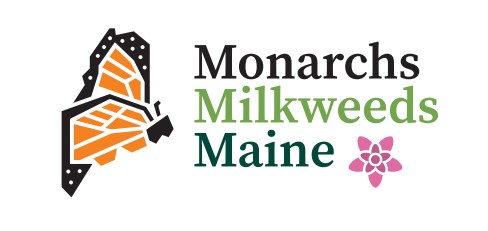SOS Webinar Series
Our goal with these webinars is to provide easily accessible information that relates to phenology, our indicator species, and research happening in New England. Several of the previously recorded webinars feature experts who are direct partners with Signs of the Seasons and/or serve on our Advisory Team. Other webinars highlight work being done by local researchers on topics relevant to phenology and the species that we observe.
Webinars are typically about 1 hour long. This includes a presentation time of approximately 40-45 minutes and a Q&A session of about 15-20 minutes. Q&A sessions are facilitated by an SOS Team Member.
All webinars are free and open to the public, but we request that participants register ahead of time. The registration process allows us to distribute the log-in information that is needed in order to view and participate in the webinar. A link to the registration form will be posted when a webinar is announced. We record each webinar so that those who are unable to view the live event will have an opportunity to learn from the material and enjoy the presentation.
If there is a particular topic that you would like to see covered in a future webinar, please feel free to contact us. We are limited to working with individuals who are able to coordinate their schedules to be able to present their research, but your feedback is helpful for prioritizing future topics.
Webinar Series Table of Contents:
2024 Webinar Series
- Monarchs Milkweeds Maine Webinar
Friday, September 6, 2024 1:00-2:30 p.m. Eastern
 Please join us to hear from a monarch expert Dr. Karen Oberhauser (University of Wisconsin-Madison) and biologists working with monarchs at the Coastal Maine Botanical Gardens! Registration is required for this free event.
Please join us to hear from a monarch expert Dr. Karen Oberhauser (University of Wisconsin-Madison) and biologists working with monarchs at the Coastal Maine Botanical Gardens! Registration is required for this free event.
2022 Webinar Series
2018 Webinar Series
- Wood frog research and ecology
- Researching phenological change in Acadia National Park: from hikes to experimental gardens
- Advancing phenology: tracking changes of birds, bugs, and select plants in the Acadia Region
- Introducing Anecdata for Coastal SOS Monitoring
2017 Webinar Series
- Uncovering the Past Through Maine’s Historic Phenology Data
- The State of Maine’s Loons
- Coastal Research Update
![]()
2022 Webinar Series
Rockweed Phenology Research
This event, co-hosted by Maine Sea Grant, New Hampshire Sea Grant, and Maine and New Hampshire Cooperative Extensions, features presentations by Signs of the Seasons’ partner scientists: Jessica Muhlin, Professor of Marine Biology, Maine Maritime Academy; and Hannah Webber, Marine Ecology Program Director, Schoodic Institute at Acadia National Park. (Recorded live May 13, 2022.)
2018 Webinar Series:
Wood frog research and ecology
Dr. Kristine Hoffmann provides an overview of Maine amphibians and then focuses on a local wood frog research project. (Recorded on June 28, 2018.)
Researching phenological change in Acadia National Park: from hikes to experimental gardens
Dr. Caitlin McDonough MacKenzie shares a research update on her work in Acadia National Park and introduces a new project that includes the use of experimental gardens on Cadillac Mountain. (Recorded on June 7, 2018.)
Advancing phenology: tracking changes of birds, bugs, and select plants in the Acadia Region
Seth Benz, Director of the Bird Ecology Program at the Schoodic Institute at Acadia National Park and a Signs of the Seasons Program Advisor, provided an overview of the phenology-related projects happening throughout the park. (Recorded on May 24, 2018.)
Introducing Anecdata for Coastal SOS Monitoring
Join us as we introduce Anecdata as the online database for our Coastal SOS Monitoring program. Featuring Duncan Bailey, Systems Developer for Anecdata and the MDI Biological Laboratory. (Recorded on June 6, 2018.)
2017 Webinar Series:
Uncovering the Past Through Maine’s Historic Phenology Data
Learn about Dr. Caitlin Mcdonough’s research to uncover, compile, and analyze phenology resources in the understudied region of northern New England and quantify the flowering and leaf out responses of species and populations in these plant communities. In this webinar, she talks about her historic collaborators — a hunting guide’s journal from mid-twentieth century northern Maine and the 1894 Flora of Mount Desert Island, Maine. (Recorded August 4, 2017).
The State of Maine’s Loons
Where do loons go in winter? What do they eat? How many are in Maine? How are they impacted by climate change? Learn the answers to these and many more questions in this short, informative multimedia webinar. The webinar also looks at population changes over the last 33 years, research on causes of mortality, and efforts to conserve their lake habitat in Maine. (Recorded July 13, 2017).
Coastal Research Update
This program provides an introduction to Signs of the Seasons coastal observing protocols and an Ascophyllum nodosum (rockweed) research update by our collaborating scientist, Dr. Jessica Muhlin from Maine Maritime Academy. (Recorded June 20, 2017).
